ZMINA and MIHR call on foreign Embassies to fight for Ukrainians abducted by Russia
On August 3, at the residence of the British Ambassador in Kyiv, Human Rights Centre ZMINA and Media Initiative for Human Rights (MIHR) held a Witness Testimony event with representatives of the embassies of various countries to promote the release of Ukrainians abducted by Russia during the occupation.
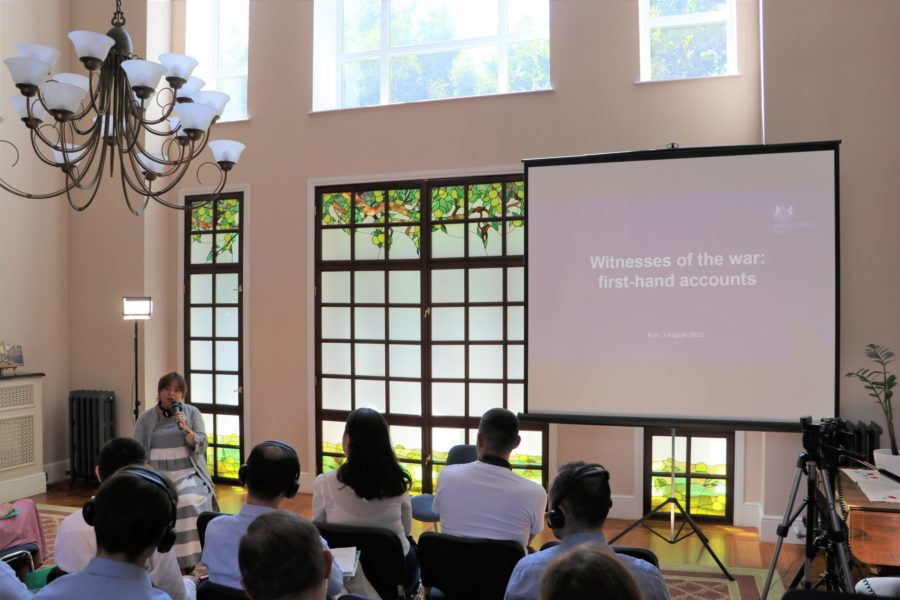
This event is timed to the International Day of the Victims of Enforced Disappearances which will be marked worldwide on August 30. Therefore, the event organizers called on representatives of the embassies to communicate the topic of enforced disappearances of Ukrainians during August.
Head of ZMINA Tetiana Pechonchyk said that the exact number of kidnapped Ukrainians was currently unknown:
“According to the Ukrainian Parliament Commissioner for Human Rights, more than 20,000 civilians have been abducted. But we are convinced: these numbers are bigger. Since the beginning of the full-scale war, our organization has documented 562 detentions of active citizens, journalists, volunteers, educators, etc.”
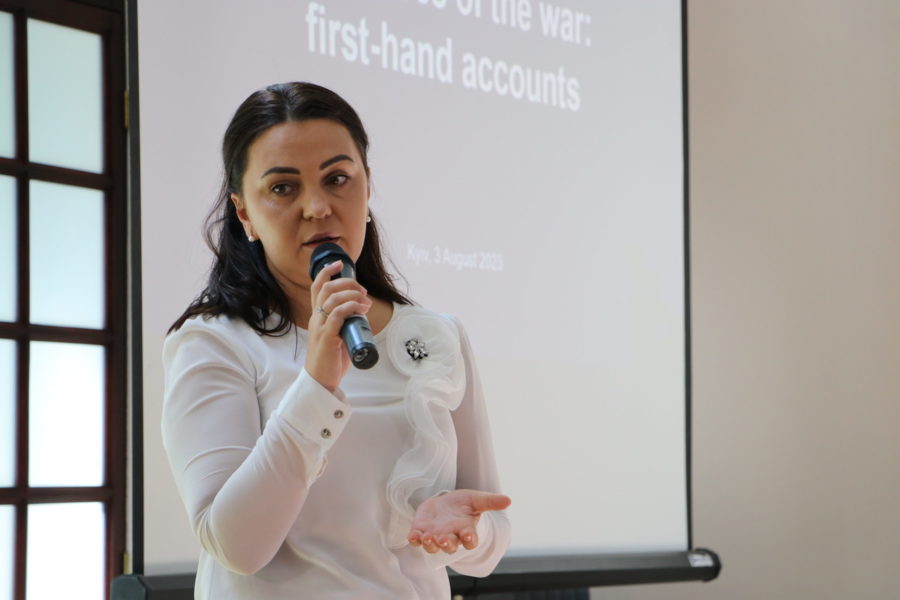 Tetiana Pechonchyk
Tetiana Pechonchyk One of the abducted Ukrainian civilians is activist, journalist, resident of Nova Kakhovka Serhiy Tsyhipa who has been in captivity for more than a year. He was detained for his active pro-Ukrainian position and journalistic activity. Thanks to his efforts, a mass event of civil disobedience was held in the city. Tsyhipa was also active in volunteering, helping people with food and medicines.
The man’s family did not know about his whereabouts for a long time. Currently, it is known that he is held in pre-trial detention center No. 2 in Simferopol.
His wife, Olena Tsyhipa, said that on the day of her husband’s detention, March 12, 2022, at the checkpoint, the occupiers allegedly managed to restore “evidence” of his pro-Ukrainian position in a phone even though he carefully deleted all the content.
As it became known later, on March 16, 2022, Tsyhipa was taken to Crimea. Only in November did the wife receive confirmation that her husband was being held in Simferopol. An espionage case was opened against him in December, and Serhiy was recently served with a notice of charges. At each call for investigative actions, Serhiy Tsyhipa is denied a lawyer hired by his wife. In December, the family learned that Serhiy was being tortured and beaten in the pre-trial detention center.
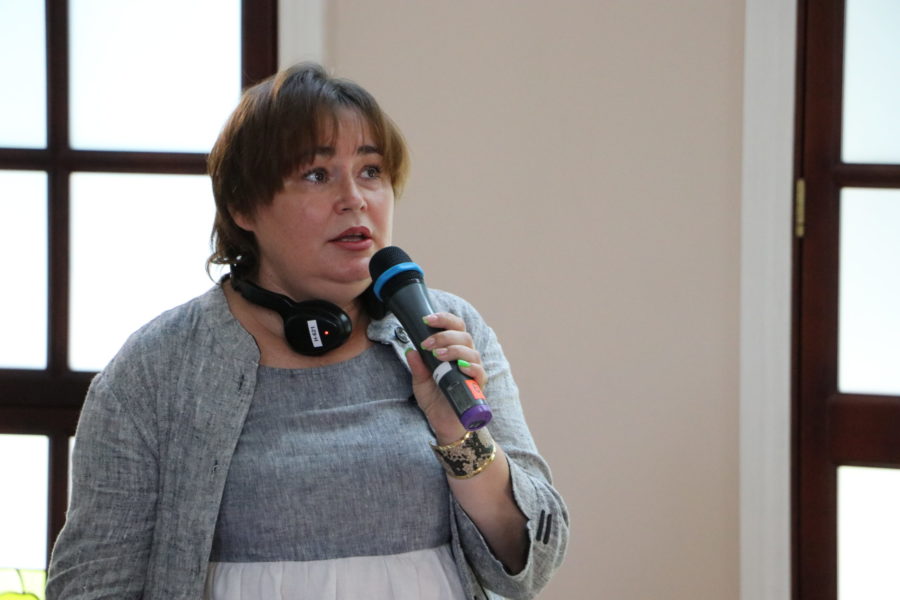 Olena Tsyhipa
Olena Tsyhipa “It can be said that I am held captive remotely with my husband, I have serious health problems that have appeared over the past year. Therefore, I ask everyone present here to conduct international advocacy work for the release of abducted Ukrainian civilians. Civilians in captivity stay in the same conditions as the military – they are mocked, tortured, and pressured. We, the relatives of the abductees, really need your diplomatic help,” said Olena Tsyhipa.
Mykola Zahozhyi was kidnapped by the Russians in Kyiv region in March 2022. The man returned home during a swap in February this year.
“One day on my way to work, I was detained. My hands were tied, I was blindfolded and thrown into a pit and interrogated to get information about the Ukrainian military. Later, we were transferred to a tent camp, where we were not allowed to drink. They only poured water on us to keep us cold. Shells were constantly hitting the positions where we were held,” Zahozhyi said.
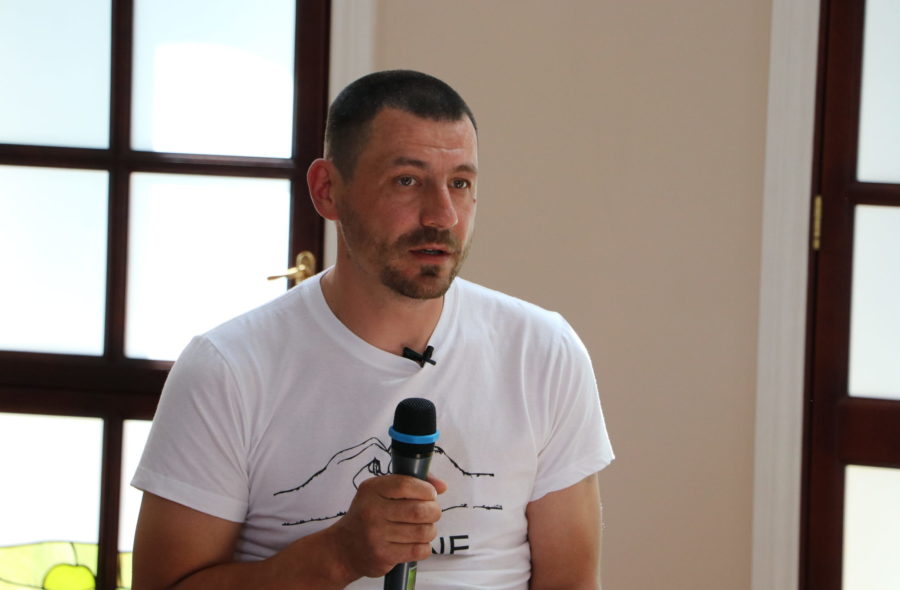 Mykola Zahozhyi
Mykola Zahozhyi After the camp, they were transported to the Kursk pre-trial detention center, where the Russians beat and humiliated the men throughout their confinement. Later, they were transferred to the Tula pre-trial detention center, where abuse also took place. Zahozhyi says that in all the places where he was held, most of the detainees were civilians.
“It is difficult to tell in what conditions we were held, it was difficult not to break down. I managed to survive morally thanks to the people with whom I was held,” the man shares. He believes that he was exchanged because the Russians passed him off as a soldier in order not to exchange Ukrainian fighters.
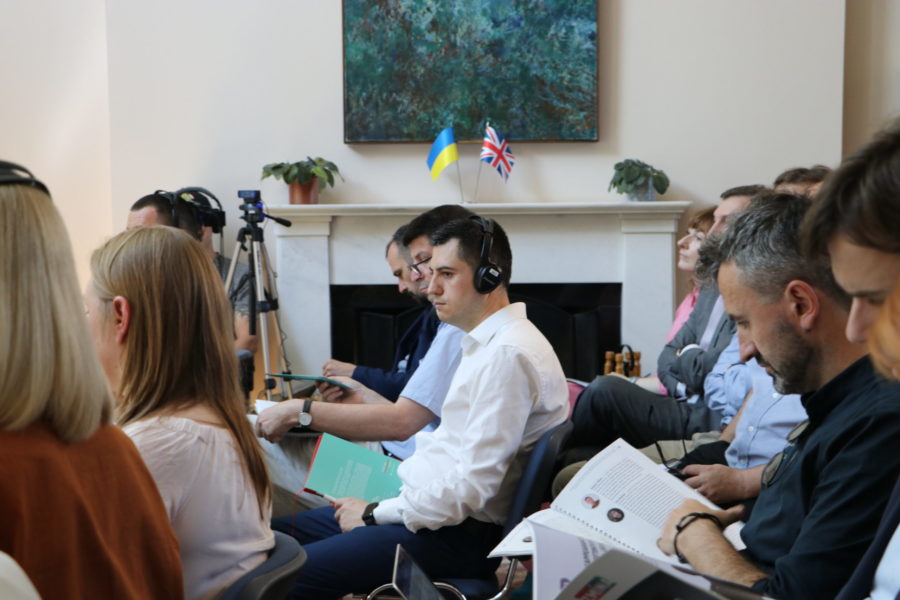
Kateryna Ohiyevska, the fiancée of Mykyta Buzinov, who was abducted in Chernihiv region in March 2022, said that immediately after the occupation started, the Russians searched for and kidnapped residents who were suspected of collaborating with the Ukrainian military. In particular, they detained and interrogated the Buzinov family – brothers Volodymyr and Mykyta and their mother. The Russians also interrogated Kateryna Ohiyevska in front of Mykyta, threatening her with a machine gun, thereby trying to get some information about her “cooperation” with the Ukrainian army.
After interrogation, Mykyta was taken to an unknown destination. His relatives searched for him for nine months, and only in November he was allegedly found in Belgorod pre-trial detention center. All the time, the family wrote letters to the UN, the Red Cross, the Coordination Headquarters, and the National Police.
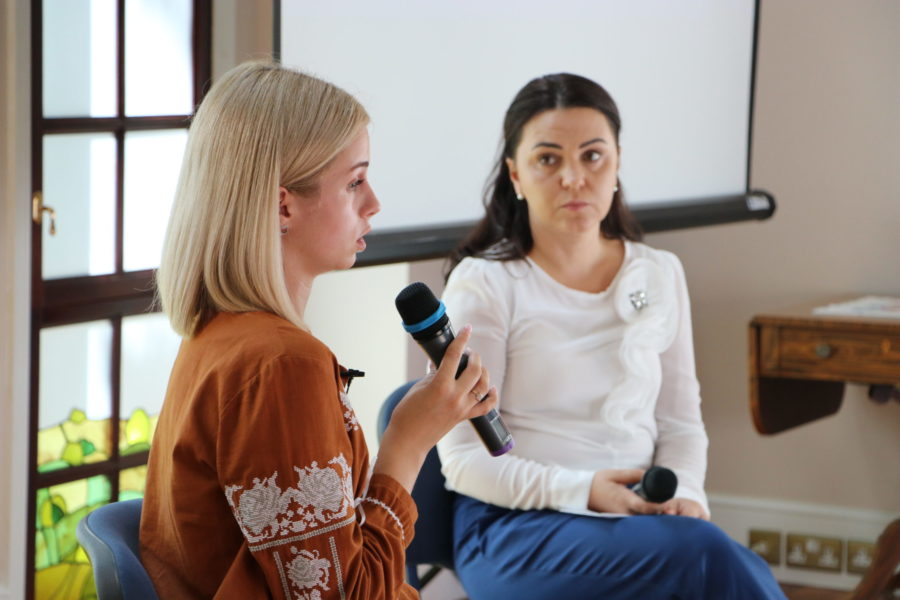 Kateryna Ohiyevska and Tetiana Pechonchyk
Kateryna Ohiyevska and Tetiana Pechonchyk The first months after Buzinov’s arrest were very difficult for his relatives as they did not know in which status to look for him – among the living or the dead. The parents even took a DNA test and waited months for the result. Now they are continuing the search because there were no matches with DNA, and the relatives hope for the boy’s return.
Olha Reshetylova, head of the Media Initiative for Human Rights (MIHR), presented to diplomats the road map for the release of hostages, which the MIHR developed together with Ukraine 5AM Coalition. According to her, first of all, it is necessary to create a separate institution in Ukraine that would deal exclusively with the search and release of civilian hostages. It is this agency, Reshetylova is convinced, that should involve the international community in the negotiations on the unconditional release of Ukrainian civilians who are being held by Russia for no reason.
“We see Russia actively moving hostages deeper and deeper into its country. We know about the Ukrainian citizens held in Mordovia and in Grozny in Chechnya. And we fear that if we don’t track these movements, we may not find these people even after the war is over. Ukraine already had such an experience in its history when both the Soviet Union and the Russian Empire deported millions of Ukrainians to camps in Siberia, and many Ukrainian families are still looking for traces of their relatives and do not know what happened to them. This is not only our rational fear as human rights defenders, it is the fear of all Ukrainians at the genetic level. We call on the international community to do everything possible to prevent this from happening again in our history,” Reshetylova said.
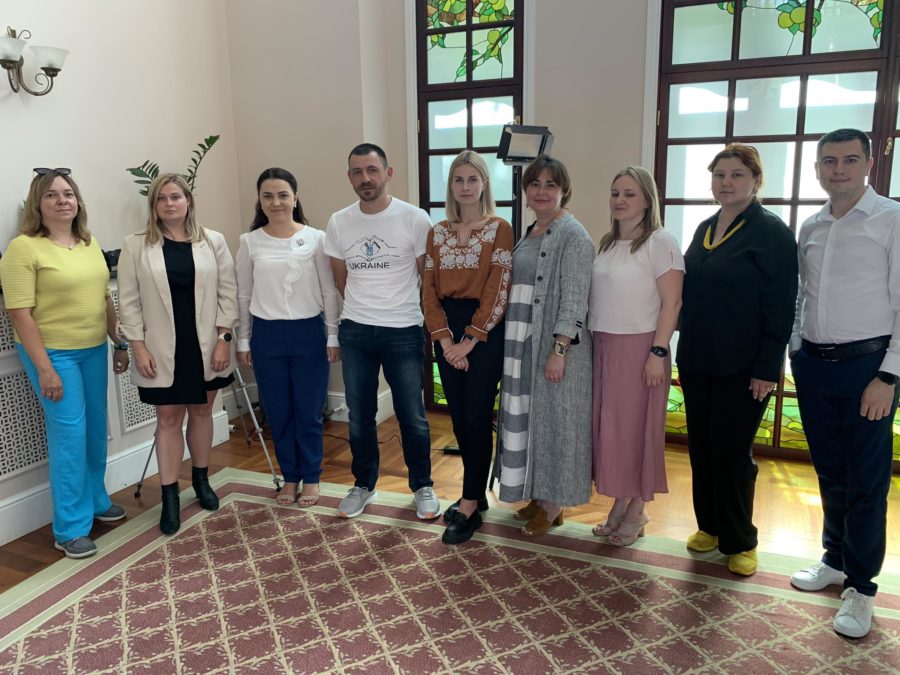
The event was attended by representatives of more than 20 different embassies, who were encouraged by the organizers to disseminate the stories of victims of enforced disappearances.
If you have found a spelling error, please, notify us by selecting that text and pressing Ctrl+Enter.















